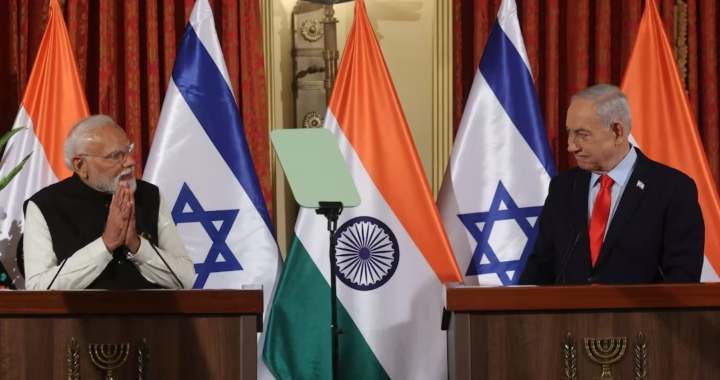We Welcome 2023 With G20

Welcoming the year 2023, India resumed the presidency of G20 from Indonesia, having substantial visions and higher prospects. The mighty “Group of Twenty” are responsible for the majority of international trade while covering a big portion of the world GDP. The members of the G20 include Argentina, Australia, Brazil, Canada, China, France, Germany, India, Indonesia, Italy, Japan, the Republic of Korea, Mexico, Russia, Saudi Arabia, South Africa, Türkiye, the United Kingdom, the United States, and the European Union. Together, the G20 accounts for more than 80% of the world GDP, 75% of global trade and 60% of the population of the planet.
The presidency of G20 rotates every year to different countries, but what makes this year unique is its presidency getting into the hands of India with an agenda of overcoming various insecurities and conflicts that its predecessor failed to heed. The G-20 was founded back in 1999 after the Asian financial crisis as a forum for Finance Ministers and Central Bank Governors to discuss global economic and financial issues. The Group of Twenty (G-20) comprises 19 countries (Argentina, Australia, Brazil, Canada, China, France, Germany, India, Indonesia, Italy, Japan, Republic of Korea, Mexico, Russia, Saudi Arabia, South Africa, Türkiye, the United Kingdom and the United States) and the European Union.
The year 2022 started with hassles and distress starting from the Russia-Ukraine war, continuing with global food insecurity, and ending with a high inflation rate across the world. During the year 2022, we also witnessed how Europe faced an energy crisis and how some low-income countries faced acute food shortages due to a quantum jump in wheat prices. The Prime Minister remarked that India’s G-20 presidency is coming at a time of crisis and chaos. He said that the world is dealing with the aftereffects of a disruptive once-in-a-century global pandemic, conflicts, and economic uncertainty.
With the previous year ending with no honest solution or action taken to overcome any of these problems, this year has already pushed many “hopes” to settle out all. All we knew is that G20 consists of powerful countries that could bring out something to get over problems of international importance. The G20 logo ‘a lotus flower and a globe’, while the theme for India’s G20 presidency is “One Earth, One Family, One Future” which highlights its commitment to ‘Vasudhaiva Kutumbakam’ (the world is one family), taken from the Maha Upanishad (most ancient of Vaishnava Upanishads attached to the Atharvaveda).
India holds a strategic and diplomatically special position in the world. We have already seen how global leaders rushed for Indian statements in the UN when Russia invaded Ukraine, we also witnessed how various countries turn towards India when the global food crisis started striking the world. India plays a “gateway” for the desperate west to set their bays for the eastern world.
Taking towards the presidency of G20, the world knows how India is working towards the goal of clean energy and zero-carbon emissions. With the major projects that India is looking towards future to promise a clean energy supply to the citizen, the west is already expecting ideas that can help them to overcome the threat of their energy crisis.
India’s objectives include the supply of affordable technology for sustainable environmental development, highlighting the digital transformation of the country
India, which holds a surplus in food availability can also assist many countries in fighting against global food insecurity and high inflation. India’s journey towards climate change concern and sustainable development is already praised by many and the Prime Minister has already taken many initiatives against the emission of harmful gases and elements harming natural resources.
Apart from these, India also emerges as an advanced nation in “Fin-tech”. The use of UPI made transactions easier, more secure, and more monitored in India in comparison with other countries. The G20 presidency of India will open the doors for other countries to achieve the aims they are fighting for. The groups focus on policy coordination between its members in order to achieve global economic stability, and sustainable growth; promote financial regulations that reduce risks and prevent future financial crises and create a new international financial architecture. India’s objectives include the supply of affordable technology for sustainable environmental development, highlighting the digital transformation of the country.
In the words of Prime Minister Narendra Modi, “the G20 has a partnership comprising two-thirds of the world’s population, three-fourths of world trade, and 85% of world GDP. You can imagine – India is going to preside over such a big group, such a powerful group, from December 1… The theme represents many key messages from India, the message of Buddha for freedom from war, Mahatma Gandhi’s solutions in the face of violence, through G-20, India is giving them a new height.”




